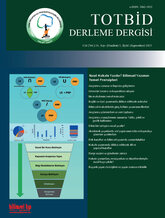
Peer review is a crucial component of the scientific publication process, designed to enhance research quality and ensure academic validity. This review provides a comprehensive guide for authors on how to manage reviewer feedback, navigate the revision process, and address key considerations following acceptance. It outlines types of peer review systems, editorial decision outcomes, and practical strategies for analyzing reviewer comments and preparing structured response letters. The article also discusses how to handle conflicting or unrealistic reviewer suggestions with professionalism and scientific justification. Revisions to the manuscript, such as clarifying methodology, presenting results more effectively, and improving figures or tables, are explained in detail. Furthermore, the importance of the proof stage before publication, as well as post-publication correction mechanisms like errata or corrigenda, is examined. The final section emphasizes the broader academic benefits of the peer review process, highlighting its role not only as a gatekeeping mechanism but also as a constructive opportunity for educational growth. This review aims to support especially early-career researchers in overcoming the challenges of the peer review process and enhancing their chances of successful publication.